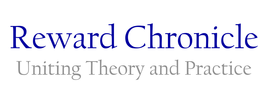|
With labour markets becoming increasingly competitive, government agencies can often face challenges in attracting and retaining Millennials. A Canadian study examined some of the factors that motivate Millennials in the workplace, as well as their expectations of working in the public sector. The study found that both perceived intrinsic benefits and extrinsic rewards motivate Millennials, while many Millennials working in the public service see it as a vocation.
Key Topics: Public service; Millennials; Motivation
Title of Reviewed Article: Millennials And Public Service: An Exploratory Analysis Of Graduate Student Career Motivations And Expectations
Researchers: Daniel Henstra (University of Waterloo) and Rosemary A. Mcgowan (Wilfrid Laurier University). Publication: Public Administration Quarterly, 2016, Vol. 40 No. 3, pp. 491-516. __________________________________________________________________________ Setting the Scene The Millennial generation (people born between 1980 and 1995) is becoming increasingly prevalent in the workplace and as such the importance of attracting and retaining such people is increasing for companies. For governments filling public service roles this is no less of a concern as Millennials make up a significant part of the available talent pool (Chester, 2002; Ng, Schweitzer, & Lyons, 2010). Prior research has suggested that the characteristics of Millennials differ from those of previous generations, which has an impact on the work related attitudes and expectations of Millennials (Ng, Lyons, & Schweitzer,2012). In comparison to previous generations, research suggests that Millennials generally see less intrinsic value in jobs and have a desire for greater autonomy, and work-life balance (Twenge, 2010). Research also indicates that Millennials may be less loyal to their employer, and have inflated expectations in relation to career progression and rewards (Thompson & Gregory, 2012), and value greater variety in their work (Ng, Schweitzer, & Lyons, 2010). Across generations, research suggests that there are various key motivators for working in public service, which include commitment to civic duty and the public interest, interest in public policy making, self-sacrifice, and compassion (Perry, 1996), and individuals motivated by these factors are more likely to be attracted to public service. Recent research examining millennials indicates that some are strongly motivated by these intrinsic factors, more so than extrinsic rewards such as high compensation, suggesting that such Millennials would be attracted to public service (e.g. Carpenter, Doverspike, & Miguel, 2012; Taylor, 2010). The researchers of this study look to address two primary research questions. The first being - what motivates Millennials to pursue a public service career? The second being - What are their expectations concerning the benefits of a career in the public sector? How the research was conducted This study was conducted using 40 participants from a Canadian University’s Master of Public Service program. Participants were all Millennials born between 1980 and 1995. This Master program was intended to prepare graduates for jobs in federal, provincial, and municipal public service. The researchers examined the written statements of interest that these students had submitted with their application to the Master program. These statements included details in relation to why they wanted to work for the government and their interest in public service work. Key Research Findings The researchers found a number of catalysts motivating Millennials to pursue a career in public service. Personal experiences were a significant motivator for many of the participants, such as witnessing people’s hardship or coming from a disadvantaged background themselves, as well as prior volunteering or other related work experience. These factors were influential in the desire of Millennials to shape public policy, and led many to feel a commitment to civic duty and the public interest, as well as a ‘call to serve’. These factors suggest that there is a high degree of internal motivation, with participants displaying high levels of compassion and self-sacrifice. However, analysis also found that Millennials were attracted by the extrinsic rewards, through the expected benefits and rewards associated with public sector work, such as career opportunities and favourable retirement benefits. Results Commentary The finding that Millennials pursuing public service often see it as a calling is consistent with prior research which identified compassion as a key factor among those pursuing a career in public service (e.g. Perry, 1996). Similarly, the indication that Millennials, in pursuing public service, desire to ‘make a difference’, is in line with prior research on Millennials that suggested they place high importance on being engaged in meaningful work (e.g., Myers & Sadaghiani, 2010). The finding that extrinsic motivation is also an important factor for Millennials is unsurprising, and is consistent with the large body of research on the role of extrinsic motivators, such as monetary rewards and career development, and career choice which suggest extrinsic motivation is a key motivator across generations. Organizational and Reward Implications An important factor in government efforts to attract and retain Millennials is governments’ ability to demonstrate that public service work aligns to the values of Millennials. Given that Millennials have the desire to satisfy both intrinsic and extrinsic motivation the best attraction and retention strategy for government may be to highlight the attractive balance between these two, of meaningful work and tangible rewards, that public service can offer. The results of this study suggest that governments should emphasise that public service work gives an opportunity to make a difference and has a real social impact. Public service recruiters could promote these aspects, as well as the vocational aspect of public service work. Framing public service in such a way touches on the intrinsic motivations of Millennials. The importance of extrinsic motivation should not be overlooked however, and to be most impactful in the attraction and retention of Millennials factors such as career progression opportunities and monetary and non-momentary rewards should be emphasised. Final Thoughts This study examines the direct feedback of Millennials on why they pursue careers in public service and the results provide valuable insights into the intrinsic and extrinsic motivators involved. While the results are insightful, they should be treated with a degree of caution given the relatively small size of the participant group and also there is a possibility that participants may have downplayed their extrinsic motivation for pursing public service under the belief that it would be negatively viewed on their application. __________________________________________________________________________ Source Article: Henstra, D. & Mcgowan, R. A. (2016). Millennials And Public Service: An Exploratory Analysis Of Graduate Student Career Motivations And Expectations. Public Administration Quarterly, 40(3), 491-516. Published by: Southern Public Administration Education Foundation For further details and access to the full journal article Click Here (subscription or payment may be required). __________________________________________________________________________ References: Carpenter, J., Doverspike, D., & Miguel, R. F. (2012). Public service motivation as a predictor of attraction to the public sector. Journal of Vocational Behavior, 80(2), 509-523. Chester, E. (2002). Employing generation why: Understanding, managing, and motivating your new workforce. Denver, CO: Tucker House. Myers, K., & Sadaghiani, K. (2010). Millennials in the workplace: A communication perspective on Millennials’ organizational relationships and performance. Journal of Business Psychology, 25(2), 225- 238. Ng, E. S., Lyons, S. T., & Schweitzer, L. (Eds.). (2012). Managing the new workforce: International perspectives on the millennial generation. Cheltenham, UK: Edward Elgar. Ng, E. S., Schweitzer, L., & Lyons, S. T. (2010). New generation, great expectations: A field study of the millennial generation. Journal of Business Psychology, 25(2), 281-292. Perry, J. L. (1996). Measuring public service motivation: An assessment of construct reliability and validity. Journal of Public Administration Research and Theory, 6(1), 5-22. Taylor, J. (2010). Public service motivation, civic attitudes and actions of public, nonprofit and private sector employees. Public Administration, 88(4), 1083-1098. Thompson, C., & Gregory, J. B. (2012). Managing millennials: A framework for improving attraction, motivation, and retention. The Psychologist-Manager Journal, 15(4), 237-246. Twenge, J. M. (2010). A review of the empirical evidence on generational differences in work attitudes. Journal of Business Psychology, 25(2), 201-210. Comments are closed.
|





